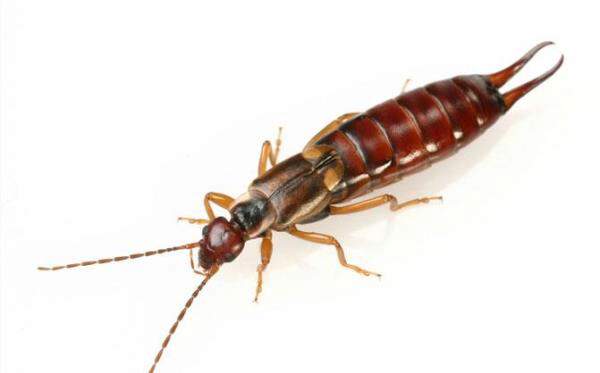Common Winter Pests & Tips to Keep Them Out
Spring and summer are commonly referred to as “peak season” for the majority of pest activity. During the warmest months in the United States, numerous pests such as mosquitos, ants, termites, and flies are active.
While some of those pests may be less active during the colder months, there are still plenty of pests and bugs in winter ready to take up residence in your home. To understand how to prevent winter pests in the home, you must first understand the behavior that attracts them inside. However, as many of us have discovered, pests do not go completely dormant in the winter. When it’s cold, wet, or snowy outside, they’re even more likely to seek the warmth and shelter of the inside.
The following are some of the most common winter pests, with brief descriptions.
— Rodent Control
During the cold winter months, mice and rats will seek shelter and warmth. They can fit through very small openings, so removing entry points is an effective way to keep them out of your home. It is also effective to remove food and water sources. Replace any damaged roof tiles and repair any cracked roofing cement. Maintain a clean and clutter-free attic and garage.
Instead of cardboard, store your items in plastic containers. Install chimney caps to keep them out of your chimney. Use wire mesh to cover your air vents. Food should be stored in airtight containers, and dirty dishes should not be left in the sink. Empty your trash cans on a regular basis and make sure the lids are secure. Do not leave trash bags lying around.
To avoid rodent infestations:
- Remove all food, water, and shelter.
- Clean garbage cans with tight-fitting lids should be used.
— Cockroaches Control
Cockroaches are drawn to moisture and standing water. They will also enter your home looking for food. Cockroach outbreaks can be difficult to manage. These insects frequently seek shelter near moisture, excess water, and food. Cockroaches will quickly multiply and eat anything they can find if not dealt with quickly. Furthermore, they emit an unpleasant odour and contaminate the surfaces they come into contact with.
Keep items off the floor by storing them in plastic containers rather than cardboard. Food (including pet food) should be stored in airtight containers. Keep dirty dishes out of the sink. Wipe down countertops, sweep, and vacuum on a regular basis. Regularly clean under sinks, inside stoves, and behind appliances. Regularly empty the trash.
Preventing cockroach infestations:
- Check your pipes for leaks and repair them as soon as possible.
- Pipes should be cleared of obstructions to avoid bursts and leaks.
- Pipe entry points into your property should be sealed.
- Ensure that all food has been cleaned and that the floors have been vacuumed.
— Spider Control
Spiders prefer to hide in unused areas of the home. Store items that are rarely used in sealed plastic containers. Seal cracks and holes on the exterior of your home to prevent water from entering. Turn off your outdoor lights and use blinds or curtains to block out the light inside. Spiders are not attracted to lights, but other insects that the spiders feed on are.
Spider webs collect dust, which is dispersed when people walk through them. This dust can cause allergies, causing breathing difficulties in some people. Furthermore, sensitive people will experience allergic reactions if they come into contact with spider droppings. Spiders, in general, are beneficial creatures that prey and feed on flies, crickets, mites, and other household and yard pests. Most are completely safe for humans. However, once inside your home, they can be quite bothersome.
Preventing spider infestations:
- Frequently vacuum
- Maintain the health of trees and plants on your property
— Bedbugs Control
Bed bugs can enter your home through luggage (be cautious of bed bugs when travelling!) or through furniture, bedding, boxes, and even clothing. Check luggage, furniture, bedding, and other items thoroughly before bringing them into your home. Use a mattress cover that completely encases the mattress and box springs. Vacuum regularly.
Wash and dry bedding on high heat on a regular basis. After travelling, do the same with your clothes. Bed bug infestations do not die out on their own, so leaving them untreated will exacerbate the problem. Bed bugs are not dangerous; however, an allergic reaction to several bites may necessitate medical attention.
To avoid bed bug infestations:
- Remove all clutter
- Vacuum frequently, including underneath and behind beds
- Repair or replace peeling wallpaper, as well as tighten loose electrical faceplates
— Ants Control
Ants typically establish their main colony outside your property, but they may establish a satellite colony inside your building during the winter. Their sole purpose is to find food and feed the colony. If they cannot find food on your property, they will either seek food elsewhere or go into hibernation. An ant infestation will never be controlled if all you do is spray the visible ants, because these are just older, worker ants following established trails to and from a hidden nest somewhere in your home’s walls.
Although it may seem counterintuitive, the key to eliminating visible ants is to target those you cannot see. Their sole purpose is to find food and feed the colony. If they cannot find food on your property, they will either seek food elsewhere or go into hibernation.
Preventing Ant Infestations:
- Remove all food and water sources.
- Maintain a clean and vacuumed floor.
— Termites Control
Termites are damaging insects that wreak havoc on wooden structures and electrical wiring. Torn-off termite wings are commonly found on windowsills during an infestation. Termiticides are thoroughly tested for potential health risks. Numerous studies are conducted by the manufacturer and independently evaluated by the US Environmental Protection Agency before a product can be used.
Termite infestation prevention:
- Ensure that the trees and plants around the property are well-watered and healthy.
- Employ pest control professionals to inspect wooden structures every six months.
Pests seek shelter in places where they can find food, water, and warmth during the winter. Because commercial buildings or industrial areas are larger, these cold-weather pests can enter in a variety of ways.
- Walls and ceilings Windows and doors
- Pipes
- Furthermore, pest populations can multiply quickly inside commercial and industrial buildings.
Finding The Best Pest Control Company:
It is sometimes preferable to hire a professional. This is especially true if the pest problem is ongoing, the infestation has grown large, or the products required for control are only available to certified professionals. Our pest control technicians are licensed and accredited to provide comprehensive coverage for your property.
We specialize in commercial and industrial buildings. By following the above precautions, you can keep pests out of your home all winter. Of course, not everything goes as planned. If you have a pest or rodent infestation, don’t hesitate to contact 1st Choice Pest Control – we’re here to help! Please feel free to look over our pest control packages and pricing here.



 Service Request
Service Request